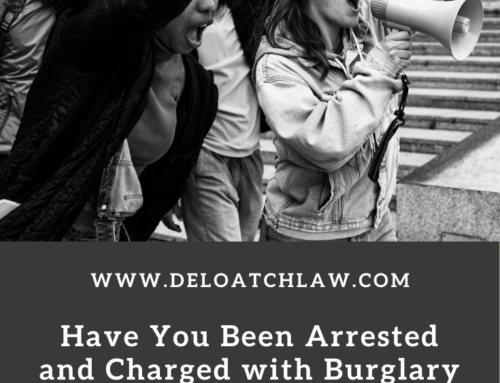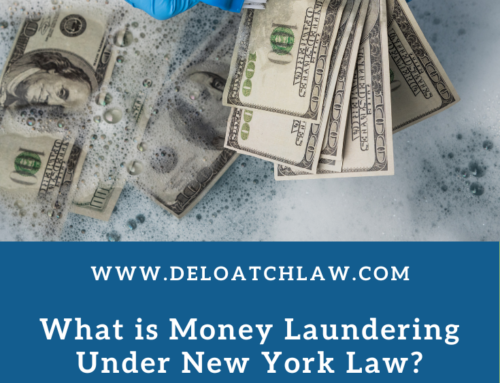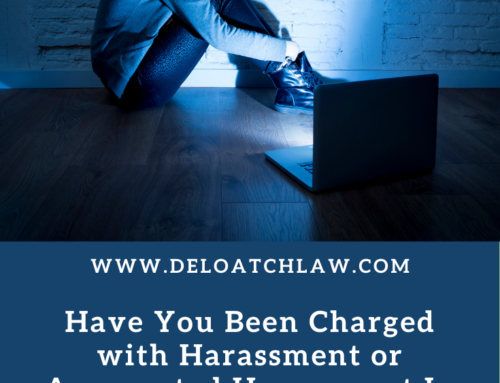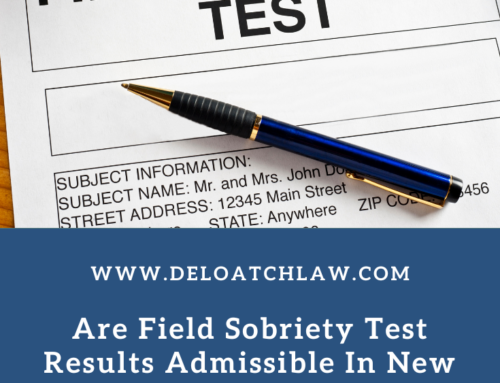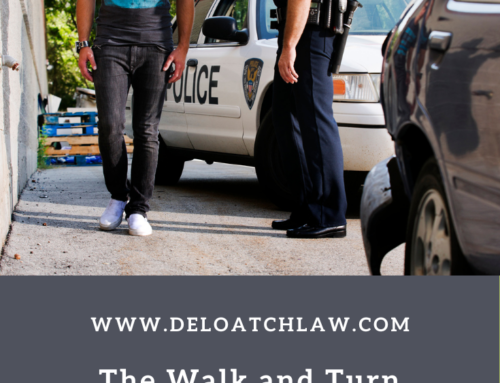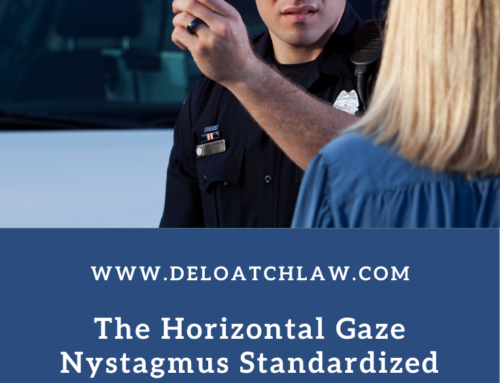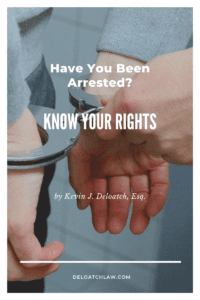 After many years of practice in criminal defense, I am still amazed at how few citizens realize how easy it is to be arrested. All it takes is for law enforcement to have probable cause to believe that a crime has been committed. This may seem like a high threshold, but it really isn’t. In many instances the probable cause can simply be a person’s statement that they have first-hand knowledge of you committing a crime. That’s it! In other instances, the probable cause can arise after you have been stopped and questioned and give what you think are reasonable responses to some seemingly tame questions.
After many years of practice in criminal defense, I am still amazed at how few citizens realize how easy it is to be arrested. All it takes is for law enforcement to have probable cause to believe that a crime has been committed. This may seem like a high threshold, but it really isn’t. In many instances the probable cause can simply be a person’s statement that they have first-hand knowledge of you committing a crime. That’s it! In other instances, the probable cause can arise after you have been stopped and questioned and give what you think are reasonable responses to some seemingly tame questions.
Reasonable Suspicion v. Probable Cause
I’m sure you’ve heard about probable cause as something law enforcement needs to arrest you. However, you can be “stopped” and questioned by law enforcement if they have only a reasonable suspicion that you have committed, or are about to commit a crime. Without getting into the technical distinctions between probable cause and reasonable suspicion, the latter is a lesser standard that can give rise to the other.
Law enforcement needs to have at a minimum reasonable suspicion to stop and question you. However, law enforcement needs to have probable cause to arrest you. It is important to understand that being stopped by law enforcement for questioning is not the same as being arrested. A person is arrested when they are taken into custody and are not free to leave. A person is not arrested simply because they were stopped for questioning.
Depending how you respond to the questioning, in terms of both verbal responses and mannerism, that “stop” can give rise to probable cause and blossom into an “arrest.”
The Right to Remain Silent
We’ve all heard about the right to remain silent or being read your Miranda rights, but how many of us truly appreciate what these concepts actually mean?
The Fifth Amendment of the United States Constitution provides every citizen and resident of the U.S. the right to remain silent in a criminal proceeding. It states, in part: “[n]o person…shall be compelled in any criminal case to be a witness against himself.”
In essence, the right to remain silent means that you have the right to not make any statements or answer any questions at any stage of a criminal proceeding or investigation that may lead to criminal charges being brought against you. Your Miranda right is similar to your right to remain silent, but slightly and meaningfully different.
A person’s Miranda rights comes from the Supreme Court’s decision in Miranda v. Arizona, 384 U.S. 436 (1966). According to the Supreme Court’s decision in that case, law enforcement is required to advise a person of their right to remain silent under the Fifth Amendment. However, that obligation arises only after law enforcement has taken that person into custody and/or placed them under “arrest”. In short, although your constitutional right to remain silent exists prior to being arrested, law enforcement does not have to advise you of this right until after you’ve been placed under arrest. Law enforcement is not required to advise you of this right if you have simply been “stopped.” Thus, anything you say prior to being placed under arrest is fair game to be used against you.
So, how does this play out in real life? When a person is simply “stopped” and questioned by law enforcement, they are not necessarily under “arrest” or in custody. It’s at this point where problems can arise. Quite often law enforcement will stop a person and ask them questions seeking incriminating responses. When the person makes such incriminating statements or acts in a particular manner thats deemed suspicious, law enforcement thus has probable cause to arrest them. Its only after the person is arrested that law enforcement is then required to advise them of their Miranda rights. However, the incriminating statement has already been made.
A fairly recent Supreme Court decision highlights this very real danger. In Salinas v. Texas, 570 U.S. (2013), the Supreme Court dealt with a situation in which a person spoke to the police voluntarily during a murder investigation. He was not under arrest when the purportedly incriminating event occurred. The Court held that police did not violate the defendant’s rights against self-incrimination, in part because the defendant did not expressly invoke his Fifth Amendment rights.
So What Should you Do?
As previously discussed, The Fifth Amendment of the U.S. Constitution provides every citizen and resident of the U.S. the right to remain silent. That right exists even if you are not under arrest at the time of the questioning. Yes, it exists even if you are simply “stopped” and questioned. This is important because, quite often the person being questioned doesn’t know why they are being questioned and that law enforcement may be looking at them with suspicion. Thus, a seemingly reasonable answer to the seemingly innocent question can unwittingly place a person at the scene of a crime they didn’t even know had occured and lead to their “arrest”. You can instead exercise your right to remain silent at any time and not answer any questions that can lead to an incriminating statement.
The Right To Not Be Questioned Without An Attorney
Similar to the right to remain silent, you have the right to have an attorney of your choosing present if you decide to answer any questions. Once you tell law enforcement that you choose to exercise your right to an attorney/counsel they are required by law to cease all questioning that would lead to an incriminating statement until your attorney is present. Even if they continue to ask such questions without your attorney present you can continue to evoke your right.
For the most part, law enforcement can continue to ask the standard background questions to determine your name, age, place of residence and occupation after you have evoked your right to counsel.
However, what happens if after you have evoked your rights to remain silent and to the presence of your attorney, law enforcement continues to ask questions and you end up giving an incriminating response? The short answer is, it depends on the facts and circumstances surrounding your subsequent statement.
In some instances, it may be deemed that you waived your rights. A court can conclude that you were aware of your rights and you simply changed your mind and voluntarily decided to answer the questions or make a statement.
However, in other instances the court can determine that your subsequent statement was made under circumstances that were neither knowing nor voluntary. Such circumstances can render the responses/statement inadmissible in a criminal proceeding involving the statements. For example, if the subsequent statement was made under circumstances that were coerced the statement can be “thrown out” and not used as evidence against you. However, specific pre-trial hearings would have to be requested by your attorney to determine the admissibility of such statements.
An experienced and skilled attorney will do a thorough analysis of your case to determine the circumstances relating your charges. Such analysis should necessarily include looking into all of the facts and circumstances surrounding your arrest and any statements that the district attorney’s office intends to use against you. Counsel needs to determine the appropriateness or necessity of specific pre-trial hearings from as early as possible.
The results of all criminal prosecutions are determined by the facts and circumstances of your specific case and the skill and experience of your defense attorney. Remember, you have rights and the district attorney/U.S. Attorney’s office still has the burden of proof in a criminal prosecution.
If you or someone you know has been arrested in New York call the Law Office of Kevin J. Deloatch, Esq. at (646) 792-2156. The office has an extensive criminal law practice. The outcome of a criminal case is often determined by what occurs at the beginning stages of the prosecution. Call today for a free consultation.

